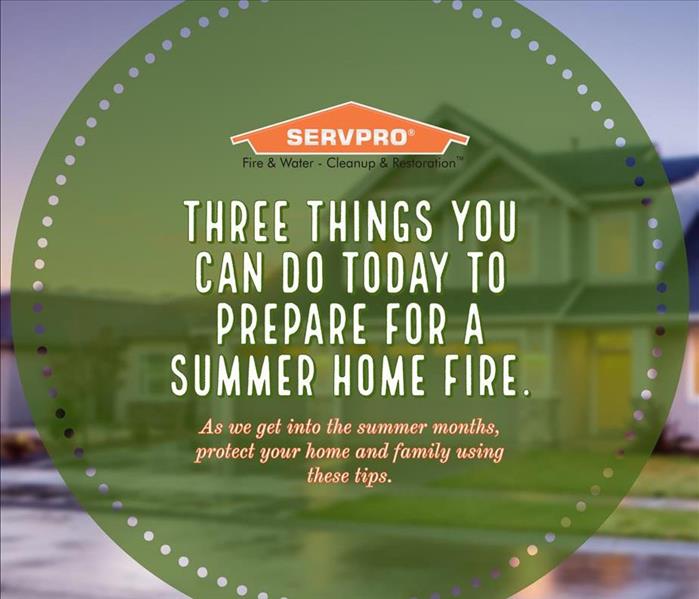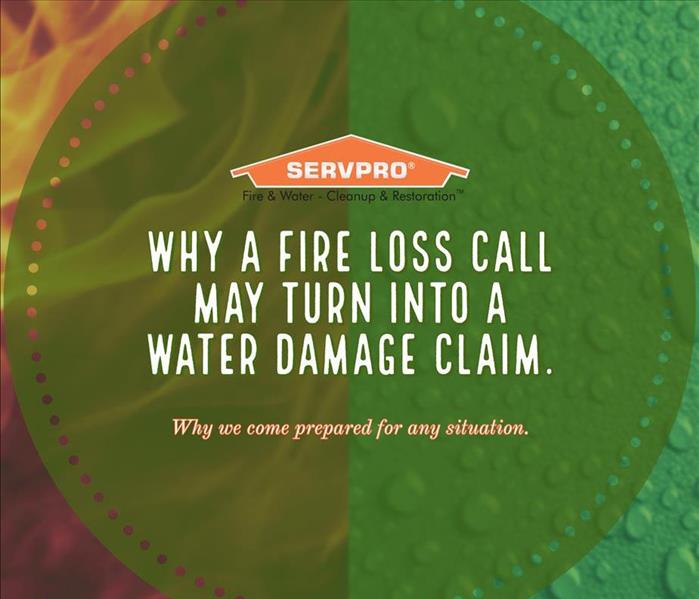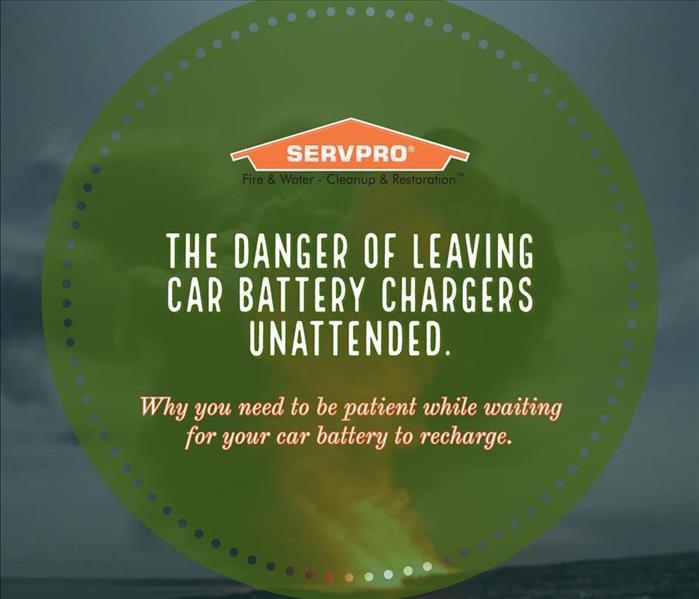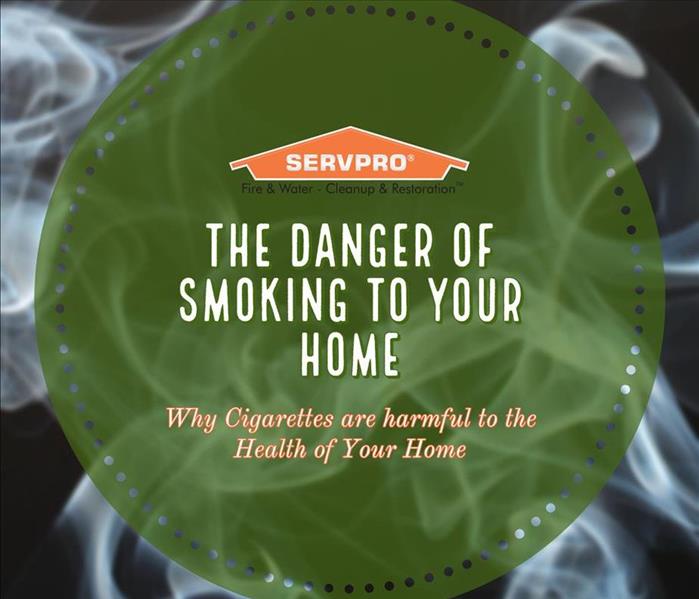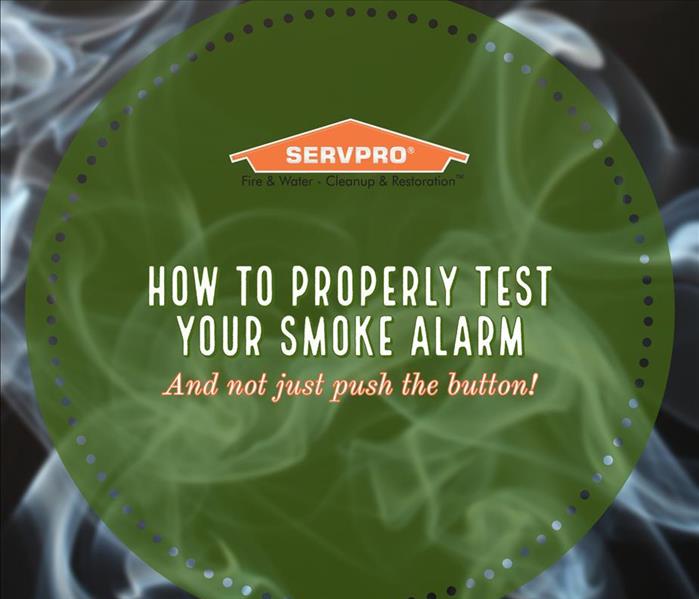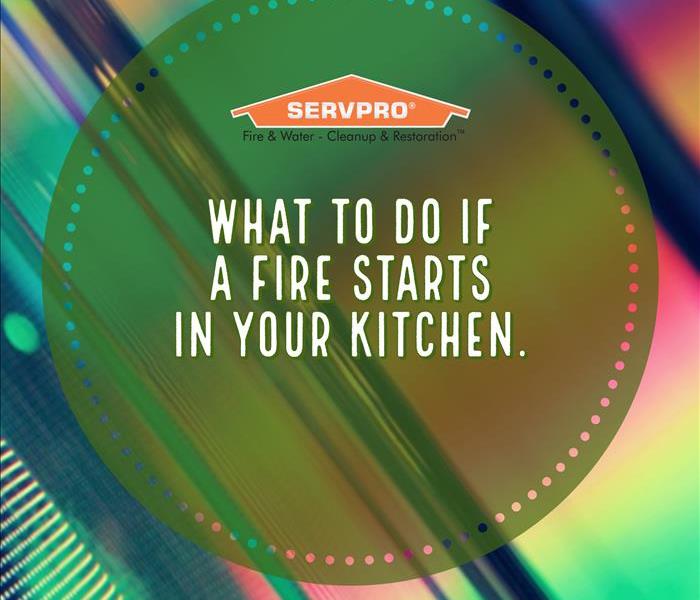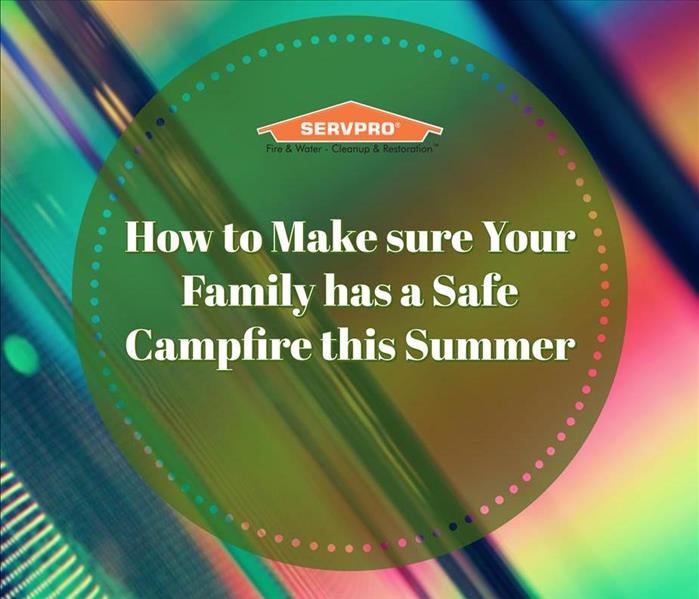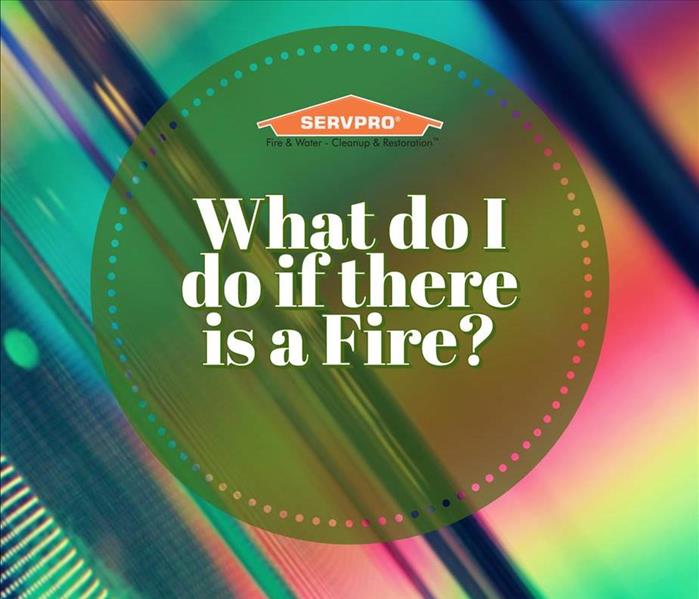Archived Fire Damage Blog Posts
Minot Smoke and Soot Cleanup
3/28/2024 (Permalink)
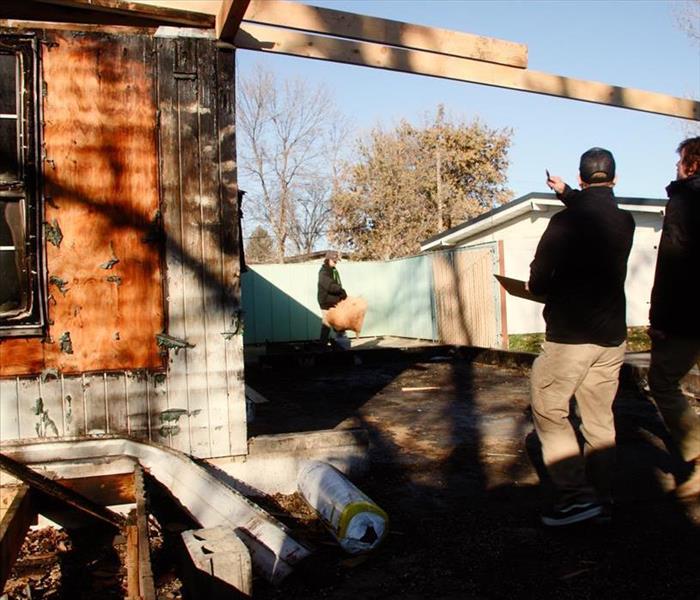 Our team on site of a home after a fire.
Our team on site of a home after a fire.
Smoke and soot is very invasive and can penetrate various cavities within your home, causing hidden damage and odor. Our smoke damage expertise and experience allows us to inspect and accurately assess the extent of the damage to develop a comprehensive plan of action.
Smoke and soot facts:
- Hot smoke migrates to cooler areas and upper levels of a structure.
- Smoke flows around plumbing systems, seeping through the holes used by pipes to go from floor to floor.
- The type of smoke may greatly affect the restoration process.
Different Types of Smoke
There are two different types of smoke–wet and dry. As a result, there are different types of soot residue after a fire. Before restoration begins, SERVPRO of Minot will test the soot to determine which type of smoke damage occurred. The cleaning procedures will then be based on the information identified during pretesting. Here is some additional information:
Wet Smoke – Plastic and Rubber
- Low heat, smoldering, pungent odor, sticky, smeary. Smoke webs are more difficult to clean.
Dry Smoke – Paper and Wood
- Fast burning, high temperatures, heat rises therefore smoke rises.
Protein Fire Residue – Produced by evaporation of material rather than from a fire
- Virtually invisible, discolors paints and varnishes, extreme pungent odor.
Our Fire Damage Restoration Services
Since each smoke and fire damage situation is a little different, each one requires a unique solution tailored for the specific conditions. We have the equipment, expertise, and experience to restore your fire and smoke damage. We will also treat your family with empathy and respect and your property with care.
Have Questions about Fire, Smoke, or Soot Damage?
Call Us Today – 701-852-7378
Tips for Cooking with Oil
10/3/2022 (Permalink)
 Be careful when cooking with oil!
Be careful when cooking with oil!
The number one cause of house fires is from cooking. The heat we use to cook our food can be dangerous when we are careless or leave a hot surface unattended. Cooking with oil is especially dangerous due to the volatility of hot oil. Below is a list of best practices for cooking with oil to make sure you and your home stay safe.
Never Leave a Hot Frying Pan Unattended
A fire can quickly ignite and become uncontrollable within seconds. Leaving the kitchen for even a short time can be disastrous for your home.
Smoking Oil is Dangerous
If you are heating up oil and it begins to smoke, this a warning sign. Immediately turn off the stovetop and wait at least 15 minutes for the surface to cool. If possible, safely move the pan from the burner and set on an unheated burner or other surface.
Keep a Lid Nearby
If a fire does happen, place the lid over the pan to suppress the fire. Do not throw water onto the hot oil as the water will instantly boil and set off a burst of hot oil and water than can spread the fire.
Cooking with oil is a quick way to make all of your favorite foods and recipes. Using caution, you can have a wonderful meal with no worries. Be sure to exercise safety when cooking at all times and hopefully you will never have to worry about cleaning up a fire in your home.
Three Tips for Fire Prevention
9/1/2022 (Permalink)
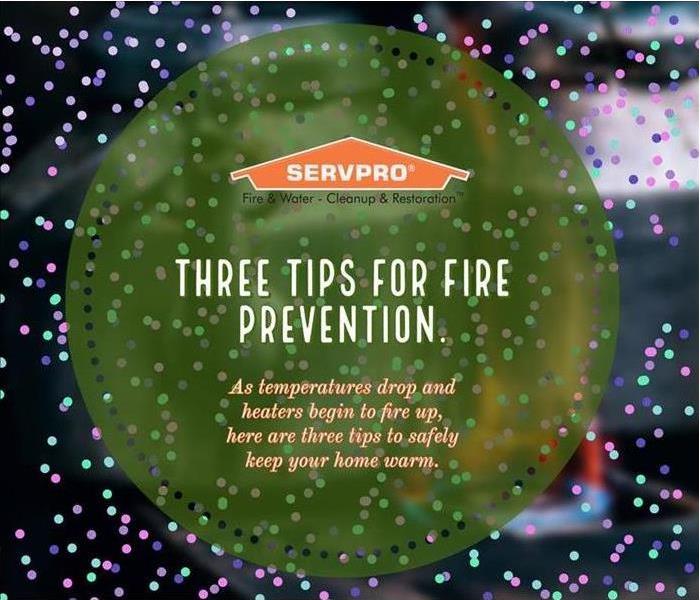 Remember these tips to keep you safe!
Remember these tips to keep you safe!
358,500 homes experience a structural fire each year (NFPA). This is a heartbreaking statistic so we wanted to share three quick tips you can use to prevent a fire in your home.
Leave space around heat sources.
No matter how you heat your home, it is important to leave room around the source of heat for each room. Dry materials can combust without directly touching a hot object. Items like clothes, papers, furniture, and pet/baby toys should be kept away from hot air that could heat them to the point of combustion.
Don’t sleep with space heaters on.
Leaving a space heater on at night is a recipe for disaster. Anything from a wiring failure, manufacturer defect, or a pet knocking it over could be the cause of a fire. While we all love to sleep in a warm, cozy room, running a space heater at night is a bad option. Instead, run it a few hours before you go to sleep, to heat up the air
Clean cooking surfaces and range hoods.
Grease builds up quickly in kitchen, especially those that use a lot of oils or butters to cook. Make sure to clean off your stovetop and oven to prevent buildup of grease on these surfaces. Additionally, clean the range hood which is a forgotten surface that builds up grease and dirt quickly.
As we approach colder weather and we start firing up the furnace to heat our homes, remember these tips for protecting your home.
Smoke Odor in Your Home
8/9/2022 (Permalink)
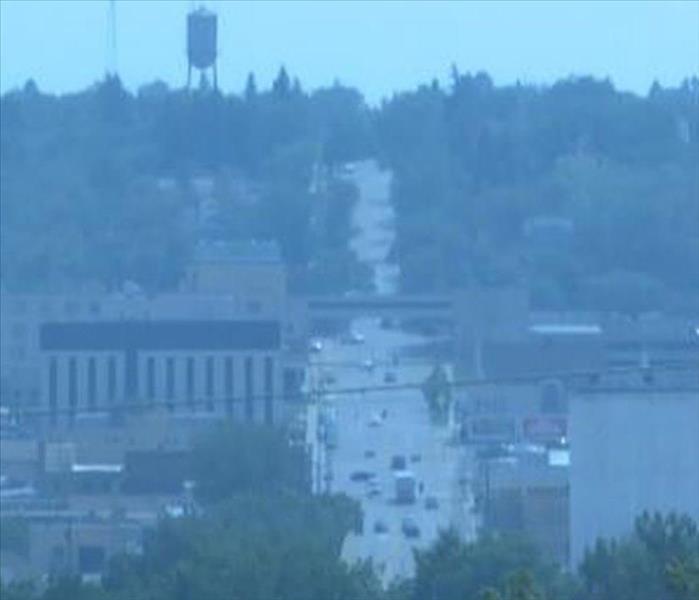 Smoke from wildfires covers downtown Minot
Smoke from wildfires covers downtown Minot
Fire season is upon us, and no one likes the smell of smoke everywhere you go outside. But your home should be a safe haven from the smoky smell, shouldn't it? That's not always the case. Smoke can linger for a long time if the wind isn't blowing hard enough to clear up most of the big stuff, which can cause the smoke to creep it's way into your home and into your carpets, walls and furniture. Now that smoky smell is stuck and plain air fresheners won't make it go away. That's why SERVPRO of Minot is here to get rid of it for you the right way. Our trained technicians have access to several odor removal products capable of penetrating surfaces to neutralize the odor thoroughly.
Leave the smoke smell outside, and leave your home smelling smoke free with SERVPRO of Minot.
How to Safely Put Out an Oven Fire
8/9/2022 (Permalink)
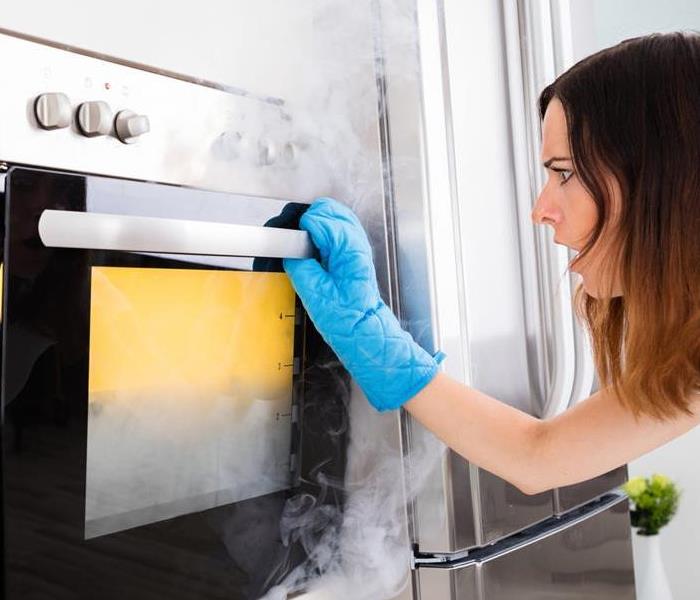 A small spark can cause a big issue!
A small spark can cause a big issue!
Picture this: You're happily cooking pancakes on a Saturday morning for your kids and the bacon is sizzling away in the oven. You HAD to get the kind with the extra fat because the kids like it better than too much actual meat. Your back is turned for one second and the next thing you know BAM! All that grease from the fatty bacon and a too hot oven has caused a fire! But don't panic! Follow these tips to help put it out and minimize the damage:
- DO NOT PUT WATER ON IT OR FAN IT. Water will instantly turn to steam and fanning it with a towel will only give the grease fire more oxygen to grow and spread to the towel which could cause burns.
- Keep the oven closed! Keeping the door shut will cut off oxygen and the fire will go out on its own.
- Turn off the oven if you can to eliminate the heat source.
Well, the bacon is inedible, the pancakes are burned, the kids are thinking the whole thing is cool to watch, and you're just happy the fire is gone with minimal damage to the kitchen. Takeout anyone?
Fire Safety with Pets
8/4/2022 (Permalink)
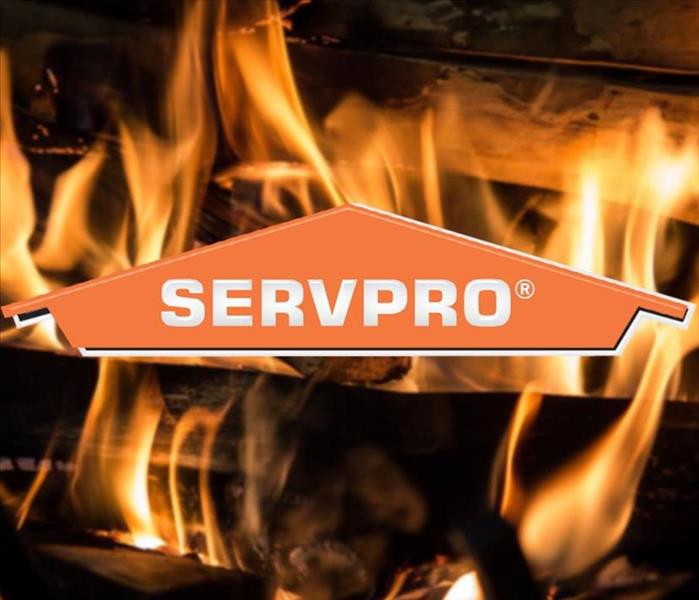 Keep your furry friend safe in the event of a fire!
Keep your furry friend safe in the event of a fire!
Pets are a part of the family, and we want to make sure that they are safe in case of an emergency. We check our smoke alarms regularly and have escape plans for ourselves, but what about our pets? Here are some tips to keep you and your furry friend safe:
Check your home for potential fire risks.
- Are there exposed wires or outlets?
Are there candles lit?
Do you have smoking materials going on?
Do you have flammable materials, like gasoline, in the house?
Do not leave your pet alone with a lit candle or space heater.
It is important to keep pets away from lit candles, space heaters and other fire sources. Pets have been known to chew on electrical cords and candles, causing fires that could be easily prevented.
If you are going out of town or leaving your pet alone in the house for an extended period of time, please make sure that a responsible adult is available to watch over your pet while you are away. There are many good alternatives to leaving them alone such as boarding facilities, friends and family members who will check in on them daily.
It is also important when bringing home new appliances such as lamps or heating units (such as space heaters) that they do not get too close to any combustible materials such as curtains or furniture so there is no possibility for accidental contact with fire sources if something were dropped.
Ensure that all smoke alarms are working properly.
Check batteries regularly.
Replace batteries as needed.
Make sure smoke alarms are installed in all bedrooms, hallways and on every level of the house.
Smoke alarms should be replaced every 10 years.
Test your smoke alarms monthly.
Keep cords and wires out of reach of pets.
Thick cords are more commonly used than thin ones, and they're a particular danger to cats. Cord protectors are available for use on electrical cords that run along the floor, but if you don't have them available at home or work, keep them out of reach by taping the cord up onto walls or taping it behind furniture. You should also consider putting plastic covers over exposed electrical outlets so your pet won't stick their little paws into them and receive an electric shock.
You may want to take extra steps when it comes to cables and wires in your home: it's easy for pets to chew on these things! If there's anything in particular that seems too tempting for your pet(s), try covering it with tape until the problem is resolved -- this will probably be pretty effective at deterring them from chewing on said object!
Practice your pet's fire escape plan as often as possible so they will remember it in case of an emergency situation.
Practice your pet's fire escape plan as often as possible so they will remember it in case of an emergency situation.
Practice in different locations in the house, including outside the house.
Practice under different weather conditions and times of day.
Check your pet's ID tags. If they have disappeared, replace them immediately with new ones that have your current contact information.
Teach older pets (over 7 years) to wear a collar with identification tags at all times, even if they aren't going out of the house or yard.
Make sure everyone in your household knows where the key is located for the door leading outside of the house that leads to any area where a pet may be kept outside at night or under other circumstances when you are unable to monitor them personally during all waking hours (e.g., when you go on vacation).
Conclusion
The most important thing is to be prepared for a fire. Make sure that you have an escape plan with your pets, and practice it regularly so that everyone in the household knows what to do in case of an emergency. You should also take steps to prevent fires from starting—for instance, keeping candles away from pets’ access and keeping wires and cords out of reach can go a long way toward preventing accidents. Finally, don’t forget about smoke alarms: these devices are critical because they alert people when there is danger nearby!
Tips for Reducing Fire and Smoke Damage
8/2/2022 (Permalink)
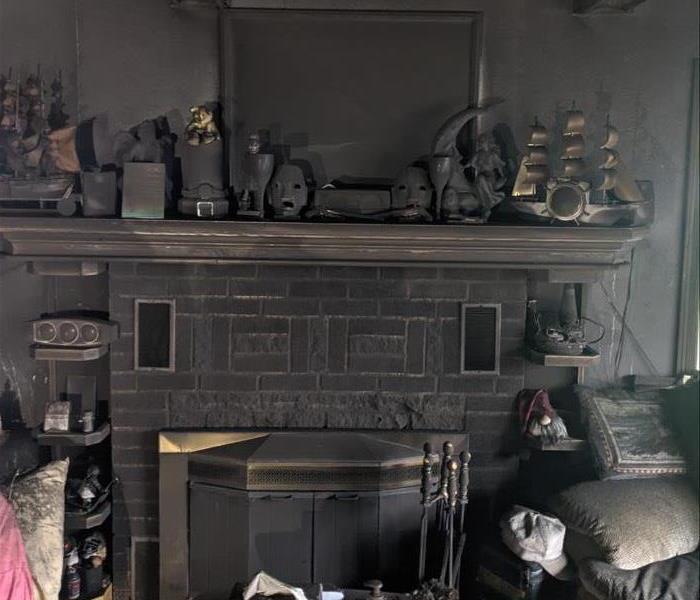 Extensive fire and soot damage before SERVPRO of Minot arrives
Extensive fire and soot damage before SERVPRO of Minot arrives
No one wants to think about the disaster that a fire has caused to their home, let alone the damage that could still happen. Here are some tips for minimizing it:
- Limit movement in your home to prevent the soot particles from being embedded into your furniture and carpets.
- Keep hands clean! Soot on your hands can further damage any items that are touched.
- Place dry towels or old linens on any furniture, rugs, or high traffic areas in your home.
- Let SERVPRO of Minot take care of the rest!
Our highly trained Fire Restoration Technicians are there and ready to help you get your home back into pre-fire shape, with less disruption to your home.
Let SERVPRO of Minot:
- Use special equipment to remove any remaining soot from the walls, ceilings and furniture.
- Get rid of any lingering odors by using industrial air scrubbers and fogging equipment.
- Restore any carpets or drywall, or paint in areas that might need a touch-up.
The time after a fire can be scary and confusing, so let the SERVPRO of Minot professionals help get your home back into shape.
Three things you can do today to prepare for a summer home fire.
5/18/2021 (Permalink)
As we head into this summer months and the temperature start heating up, now is a great time to make sure you are ready in case the unexpected happens. Summer is the busiest season for home fires to occur. Here are three things you can do today to make sure you are ready for a home fire.
Check Fire Extinguishers
Now is a great time to check your fire extinguishers and perhaps by more if necessary. Check the gauge at the top of the extinguisher and make sure it is properly pressurized. If an extinguisher has no pressure, return it to the manufacturer or proper dealer and purchase a new one. Make sure priority rooms in your home are within reach of a fire extinquisher, this includes the kitchen, garage, basement, utility rooms, hallways and any other room that could be susceptible to a fire. Remember to place your extinguishers around your home so that you will be able to reach one quickly and safely, without being cut off by a potential blaze.
Make an Escape Plan
Bring your whole family together for a reminder about the escape plan in case of a fire. Have a predetermined location for everyone to meet after they have left the house. This way it reduces family members going back into the home to look for someone, which should never be done. In the plan be sure to determine how every member will get out, where to meet, and plans for afterward such as friends or family to stay with and insurance numbers to call.
Check smoke alarms
Smoke alarms should be checked annually. This is a simple step that can be done to drastically help prevent fire damage and prevent loss of life. Make sure the alarm is fully functional by pressing the test button until a sharp piercing noise can be heard. If no noise is made, replace the battery and try again. If there is still no noise, replace the whole unit.
As we head into the summer months, be sure to take steps to protect your home and family from an unexpected fire today.
Why a Fire Loss Call may turn into a Water Damage claim.
5/12/2021 (Permalink)
While it may seem obvious when we get a fire loss claim that there will be typical signs of fire damage, burnt materials, soot, and smoke residue everywhere, you might be surprised to learn that we usually find water damage in these instances too. Whether it is a big or small fire, water damage can often come with it, creating an even larger mess and problem to clean up.
Almost all commercial buildings today have a built-in fire suppression system, this is usually overhead sprinklers. When there is a fire, these sprinklers extinguish the blaze, but in doing so, flood the property with hundreds or thousands of gallons of water. While hopefully, these sprinklers prevent further fire damage, they leave behind a different problem in the form of water damage. While the sprinklers prevent further damage and protect anyone in the building the water needs to be cleaned immediately. The sprinkler water is clean, coming straight from the water main and therefore can cause minimal harm if extracted immediately, as opposed to dirty water which can leave behind germs and harmful bacteria.
In residential properties, while there may be no built-in sprinklers, fire fighters often create water damage when extinguishing blazes. Using high powered hoses, modern firefighters can pump hundreds of gallons of water into a home. Again, leaving behind a wet mess in addition to whatever fire damage happened.
Water damage is far less deadly and dirty when compared with a large fire loss and can be mitigated faster as well. While we hope all fires can be put out quickly, whenever we get a call about a fire loss, we come prepared for water damage as well.
The Danger of Leaving a Car Battery Charger Unattended
4/13/2021 (Permalink)
During the frigid, North Dakota winters, it is common to come across a dead car battery. When temperatures dip below zero, car batteries can struggle to turn over the engine, preventing a vehicle from starting. The two remedies to get the vehicle to start are to: replace the battery or charge the battery, either through jumping with another vehicle or using a battery charger powered by an outlet.
While using a battery charger, it is important to monitor the progress of the recharge. Most modern battery chargers provide indicators that tell how far along the recharge is. Once a battery is full, starting the vehicle should be attempted, and if successful, the charger removed. If the vehicle does not start, even after having a charger on for a period of time, it means a battery is beyond saving and should be replaced with a new one from an auto parts store.
Continuing to leave a charger on a vehicle can have some bad consequences. Recently a Minot home was damaged when a charger was left on a vehicle, unmonitored, sparking a fire. Although it is suspected the charger or battery may have been compromised, there is a risk of fire with functioning equipment when left unmonitored.
Once the fire started, it quickly enveloped the vehicle that was charging and spread throughout the garage. Although the fire was extinguished, there was significant damage to the property left behind. Smoke and soot were prominent throughout the home and the garage, with damaged contents throughout.
SERVPRO of Minot is continuing to clean this property and working with the homeowner and the insurance provider, we hope to quickly complete a full restoration of the home and get it back to normal.
Fire at a Bismarck Hotel
4/7/2021 (Permalink)
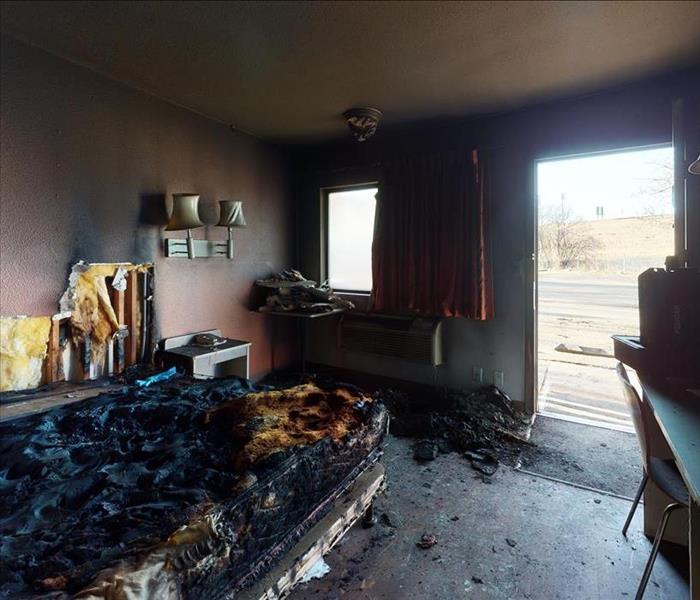 Image captured from our 3D Matterport™ camera
Image captured from our 3D Matterport™ camera
Although you may expect to have problems when you stay at a hotel, you usually have an idea of what problems those will be, a bad mattress, poor breakfast, or loud neighbors. However, you do not expect a fire to ruin your stay. That is what happened at this Bismarck hotel when a case of arson left behind a sooty, smokey room.
Staying at a hotel is supposed to be a relaxing experience. Whether you are on a trip to relax or for work, the last thing you expect to have a fire within the building. Thankfully, nobody was harmed, and the fire was contained to the one room.
This was one of the first jobs we used our new 3D Matterport™ camera to document the damage and create a 3D model of. Having a 3D model will allow us to have the most accurate documentation of the job site and easy communication between our staff, the hotel managers, and their insurance providers. This will allow us to have quicker and better communication and ensure the property gets cleaned faster, allowing the hotel to reopen that room for guests once again.
The Danger of Smoking to Your Home
8/19/2020 (Permalink)
For years, smoking has been known to have negative consequences on your health, but what about the health of your home? Although smoking inside in public areas has been outlawed for some years, smoking inside is still common in many households across the U.S. Besides the Health consequences from smoking, your home can also suffer damages as well.
Fire Danger
Smoking is the leading cause of death in home fires. With an average of 590 deaths annually and 1,130 injuries. Fires caused by smoking materials happen mostly in bedrooms (34%) and living rooms (43%) these are areas where flammable materials such as blankets, carpet, and couch fibers are liable to catch fire if they are exposed to a flame from a cigarette.
Smoking is generally viewed as only harmful to oneself, or through secondhand smoke. However, if a fire breaks out from smoking, this damages the home and endangers the lives of everyone who lives there.
Resale Value
When trying to resell a home, one that has been occupied by a smoker can be a tough sell. The smell from cigarettes is a tough one to remove and simply cleaning the carpet is not always the solution. The smell from smoke can get trapped in cupboards, vents, and even the ceiling. All of this combines to reduce home value by almost 29%. This reduced value is sure to keep rising in severity as smoking becomes less common in society.
How to Clean
Smoke is one of the most challenging smells to get out of your home. Anyone who has burnt their dinner knows the smell can linger for hours. Years of smoking inside is even harder to restore a fresh smell. When dealing with smoke, simply spraying an air freshener or cleaning the carpet will likely not do anything to help.
Cleaning the walls and ceilings with a cleaning solution is a great start, followed by a deep cleaning of the carpets and floors. Oftentimes you may need to professionally clean your air ducts. The smoke smell can get stuck in your ducts, furnace, and air conditioning units, which will need to be fully removed to keep the smell from circulating throughout your home.
NFPA (Jan. 2019) Home Fires Started by Smoking. NFPA.com. Marty Ahrens.
Realtor Magazine. (July, 2018) How Much Cigarette Smoke Decreases Resale Value.
How to Properly Test Your Smoke Alarm
7/29/2020 (Permalink)
While it is a task that is quite boring, monotonous and can be seen as a waste of time, testing your smoke alarm can literally be a life or death decision. So while yes, it is boring, this simple task can save the lives of you, your family, your pets, and your home. Here is the proper way to test your smoke alarm to keep everything you love, safe.
Make sure you can hear the alarm from everywhere in your home.
Have someone stand in the room farthest away from the alarm, with the door closed to make sure the sound is audible. If they can hear it clearly, you’re good to go, if not, you can try replacing the batteries to improve hearing or you can buy another detector to place in a better spot.
To test the alarm, it is as simple as holding the test button and waiting for the piercing noise to ring out, confirming the batteries and sound are working correctly. This does not test whether or not the alarm is properly detecting smoke, however.
Testing smoke alarms by using smoke should be done a few times a year, safely, in order to ensure proper functioning of the detector. After warning the members of the house that you are testing the alarm, strike a match and then blow it out, holding the match about a foot away from the detector. The smoke given off, should be enough to trigger the alarm, if not, repeat a few times to see if you can set it off. If there is still no response from the alarm, replace the batteries and try again. Remembering it may take a minute or two before the alarm will sound.
Safely testing your smoke alarms is a mundane task, but as a homeowner it is your responsibility to make sure your home is safe along with everyone in it.
What to do if a Fire Starts in Your Kitchen
5/13/2020 (Permalink)
A scenario that everyone fears happening, you are cooking your meal in your kitchen when suddenly there is a burst of energy and flames erupt! What happens next can be the difference between the safety of yourself, your family, and your home. Here are some tips for what to do if there is ever a fire in your kitchen.
- Grease fires can not be put out with water. If you are using cooking oil or cooking foods that give off large amounts of grease and they ignite into a fire, throwing water on that fire will only cause the water to vaporize into steam which can cause burns to yourself as well as increase the flare of the fire. Instead, try and cover the flame with a lid or dish that will cut off the oxygen supply and eventually put out the flame. If you can safely turn off the heat source, that will help as well.
- If there is a fire in your oven or microwave, do not open the door. Instead, turn off the heat source and let the flame die out on its own. Opening the door can allow fresh oxygen to reignite the flame which would otherwise die out.
- Do not try to put the fire out by swatting at it with a towel or cloth. This will only fan it and increase the possibility of it spreading onto that towel or cloth. Instead, try smothering it with a large, wet towel. Quickly soak the towel and cover the whole pan with it to try and put out the flames. If it is already too big of a fire this will not work.
- Make sure to have a fire extinguisher in your kitchen that is easily accessible. This is your best bet for putting out the fire before it causes any further damage as well as the safest option for you.
The one thing you should remember about kitchen fires is that you should never try and be a hero. You will know almost immediately whether you can put the fire out and should call 9-1-1 if you have any doubts about if you will be successful. Even a small fire can spread quickly and waiting for it to get out of control can be the difference between having a smokey kitchen and suffering from catastrophic fire damage. If you can not contain the fire immediately, call 9-1-1 for help.
How to Make sure your Family has a Safe Campfire this Summer.
5/12/2020 (Permalink)
With summer approaching fast and cabin fever from COVID-19 at an all time high, getting out this summer will be a great relief. Being able to go down to the lake, park, or backyard and sit around a warm fire while making smore’s will be a welcome treat. However, making sure it is done safely will prevent a hard year, from becoming even worse. Here are some tips to make sure your fire is safe this year.
The three things you need to make sure your fire is safe are 1) the right location 2) proper maintenance and 3) full extinguishment.
- When choosing the right location for a fire, you should make sure there is nothing in the immediate surrounding are which could catch fire. There should be 10 feet of cleared space around your fire site and nothing overhead such as tree branches or a building overhang, which could be damaged by smoke. Make sure that the location you are having your fire does not have a burn ban or fire warning in effect so that you are safe from any kind of legal trouble and you know the risk of having a fire. If at a formal campground, look for a fire pit or designated campfire area.
- Proper maintenance begins before you ever start your fire. Making sure you have all the materials you need before starting the fire is a key to safety. All fires should have a bucket of water nearby and a shovel or other tools for putting it out. Having a fire extinguisher nearby is a near guaranteed way to prevent most fires from ever getting out of control in the first place.
After your fire is started, make sure that someone is always watching over it. Never leave your fire unattended as there are a million different possibilities for something bad to happen. Proper maintenance also means proper behavior with the fire, do not throw cans, glass bottles or aerosols into the fire, they could shatter and explode sending hot, sharp projectiles all over the area. Likewise, don’t allow young children to play too close to the fire or throw any objects into the fire.
Maintain the fire by providing the proper amount of fuel. Do not add too much wood or fire igniter as you can easily make a blaze bigger than you can handle. On the other hand, do not let the fire have too little fuel as the more times you have to restart it, the more chance that a mistake happens with ignition.
- Once it is time to put the fire out, make sure it is really out. A large portion of fire accidents occur after the fire was thought to be put out. Poor the bucket of water you brought onto the coals. Then stir the coals around with a shovel or rake and add more water if they are still not cold. Keep stirring until you are able to touch the coals with your bare hand. If the whole family is involved, this process should only take a few minutes and can be a fun activity to do together. One person gets the water, a few people stir the coals, and the rest can clean up the area.
This summer should be one that is full of fun and family activities. Families will likely still need to distance themselves from others well into the fall so enjoying family activities outside such as fires can be really enjoyable. Make sure you are using the best safety practices and have a great summer!
Where to Place your Fire Extinguishers
4/13/2020 (Permalink)
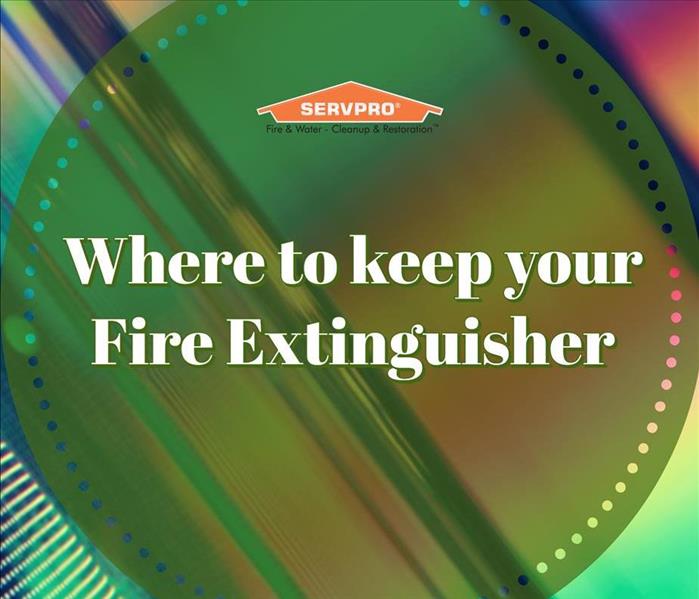 Did you know 44% of home fires originate in the kitchen?
Did you know 44% of home fires originate in the kitchen?
Fires are chaotic, unexpected, and costly emergencies that impact millions of people each year. In 2018, a US fire department responded to a call every 24 seconds. While we never expect to have a fire, it is an event that impacts 1 in 3,000 households across the country. Hopefully, you will never have to be a victim of a house fire, but you should always be prepared. One of the best things you can do to prepare yourself is to have fire extinguishers available in your house and make sure they are placed in optimal areas to combat any flames.
Before you begin positioning your fire extinguishers, first make sure they are in good working order. Make sure the locking pin, located on the handle, is intact and the seal is unbroken. Check the pressure gauge to see if it is still at full capacity and then look for any leaks or damage on the body, handle, or nozzle. Having a certified fire extinguisher inspector look over your units once a year is always recommended. Once you are sure that your fire extinguishers are fully operational you can begin to place them in areas for best use.
The Kitchen is the most common place for home fires to start. With the stove, microwave and other appliances all clustered in this room, cooking is the cause for 44% of home fires. You should place your fire extinguisher in an unblocked area of the kitchen that is not next to the stove or other appliances, the last thing you want to do is try and reach through the flames to get your fire extinguisher. If possible, place it near the center of the room and by a hallway or door so that those entering the room can access it.
Another great place to have an extinguisher is your shop or garage. This is an area where you likely have stored flammable materials such as gasoline, oils, and painting materials. This in combination with power tools that can be used make the garage or shop a mandatory area for having a fire extinguisher. Again, make sure it is stored in a highly visible area that is not blocked or covered.
Now that we are moving into the summer months, you should have a fire extinguisher available at all of your recreational areas. If you are grilling or using a firepit in your backyard, having a fire extinguisher available is a must. In addition, having a fire extinguisher in your vehicle for going to the lake, park, or camping trip is a smart move in ensuring everyone can have fun and be safe as well.
While you can have a fire extinguisher in almost every room of your house, these areas should be prioritized immediately. Making sure you are able to reach a fire extinguisher in under 10 seconds can allow you to contain the damage and save lives. Take a look at your home, or business, today and see where you are vulnerable to a fire and take action to prevent a catastrophe from happening
What do I do if there is a fire?
3/18/2020 (Permalink)
As the local leader in restoration from fire damage, SERVPRO of Minot want to keep you informed of ways to prevent fire from having a devastating impact on your life.
The Red Cross gives some excellent tips here:
- Install smoke alarms on every level of your home, inside bedrooms and outside sleeping areas.
- Test smoke alarms every month. If they’re not working, change the batteries.
- Talk with all family members about a fire escape plan and practice the plan twice a year.
- If a fire occurs in your home, GET OUT, STAY OUT and CALL FOR HELP. Never go back inside for anything or anyone.
"Who should I contact if a fire happens?"
- Immediately dial 9-1-1 and have first responders there as soon as possible.
- Make sure anyone who was in the house is out, DO NOT go back into a burning building for any people, pets, or belongings, nothing is as important as your safety.
- Once the fire has been extinguished, contact your insurance provider and see what your policy covers
- Have them contact us, SERVPRO of Minot, and we will work with them for you, to make sure everything is restored to the perfect condition.
Renters Insurance
7/6/2017 (Permalink)
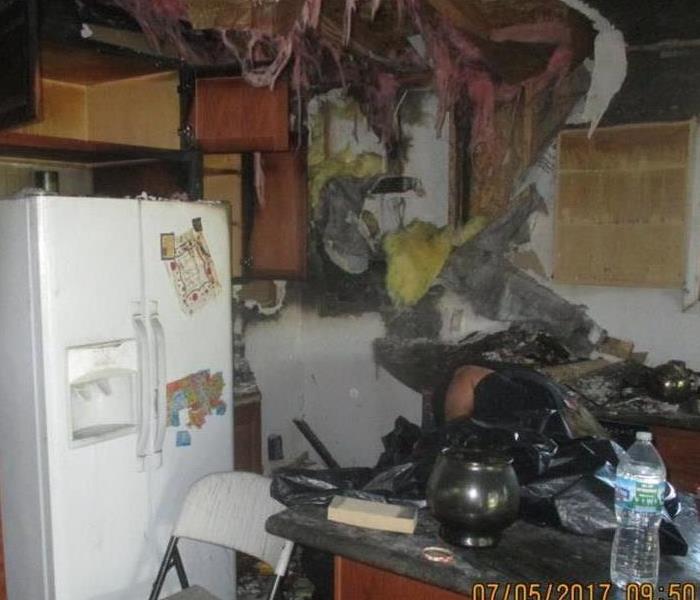 Grease fire on stove tenant was cooking and fell asleep.
Grease fire on stove tenant was cooking and fell asleep.
Fire is always a frightening event, but after the flames are extinguished, it can still be scary if you don't have renter's insurance.
The number of renters has grown dramatically in some of the most populous—and disaster-prone—U.S. cities, yet few renters actually purchase insurance, according to the Insurance Information Institute (I.I.I.)
Indeed, only 37 percent of renters have renters insurance whereas 95 percent of homeowners have a homeowners insurance policy, according to a 2014 I.I.I. poll conducted by ORC International.
“Renters insurance provides a very important financial safety net when there is a disaster,” points out Jeanne M. Salvatore, senior vice president and chief communications officer for the I.I.I. “And, renters insurance is relatively inexpensive—the average cost of a renter’s policy is only $187 per year, or less than four dollars per week.”
If you own expensive jewelry, collectibles, musical instruments or even high-end sports equipment, you may want to add a floater or endorsement to your renters policy. This would provide broader coverage for risks such as “mysterious disappearance.” So even if you lose the item, you would be covered.
No Renters Insurance
7/6/2017 (Permalink)
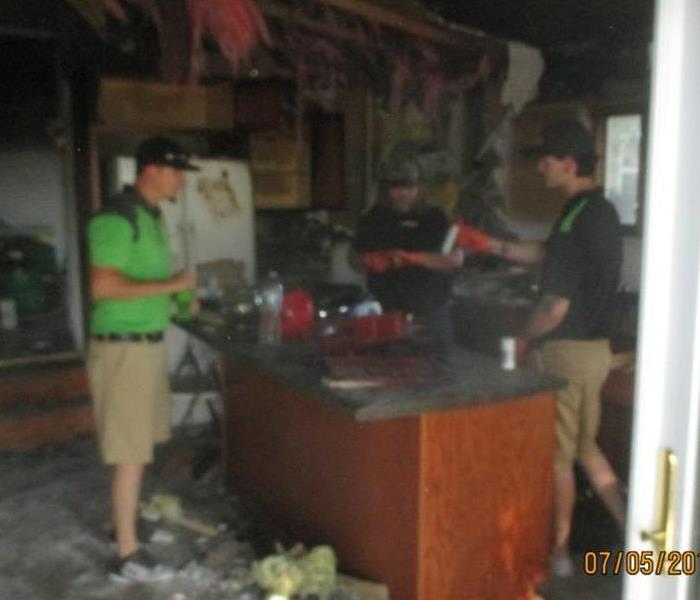 Severe interior damage to House
Severe interior damage to House
SERVPRO Employees scoping fire loss that did severe damaged to main level of the house. The tenant that lived hear had no renters insurance. All of their belongings (TV's, childrens toys, beds, clothing, furniture and food) were destroyed due to soot and high heat damage or burned by the fire. The cost to demo, clean and rebuild the structure to pre loss condition will be around $50,000.00
According to Insurance Information Institute
“Many renters are under the misconception that their landlord’s insurance policy will reimburse them if their personal property is damaged or destroyed, but that’s just not the case,” says Salvatore. “Fortunately, renters have a range of insurance options to choose from.”
Renters insurance provides financial protection against damage to or loss of personal possessions due to hurricanes, fire, lightning, theft, explosion and other disasters listed in the policy. There is even coverage for water damage caused by burst pipes or a neighbor who forgets to shut off the water in the tub. Coverage is available on either an actual cash value basis (depreciated value) or for its replacement cost (no deduction for depreciation). Renters insurance does NOT cover flooding and earthquake, but separate policies can be purchased for these events.






 24/7 Emergency Service
24/7 Emergency Service







